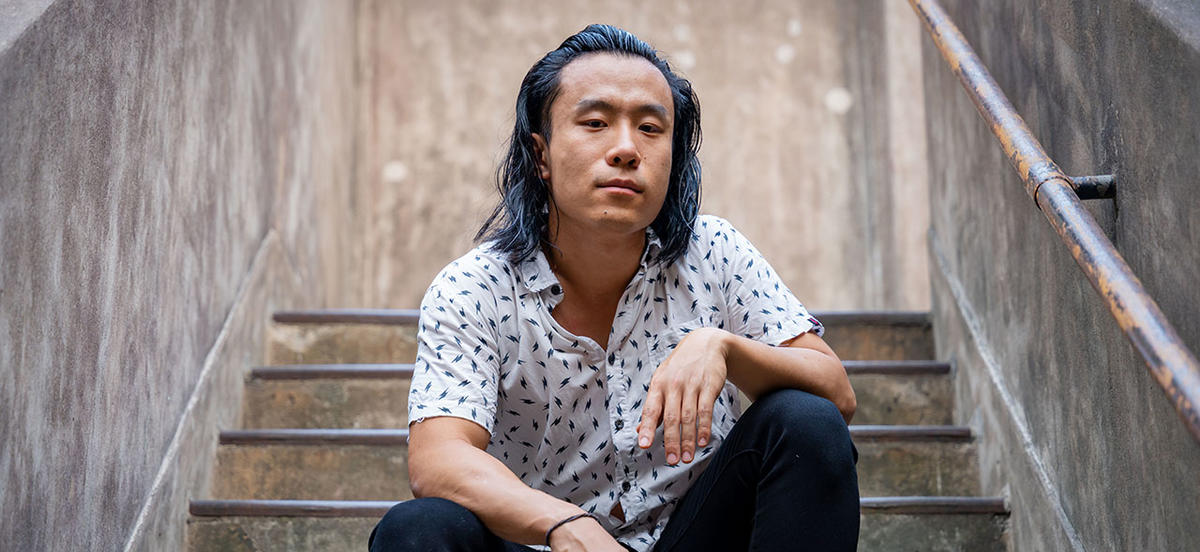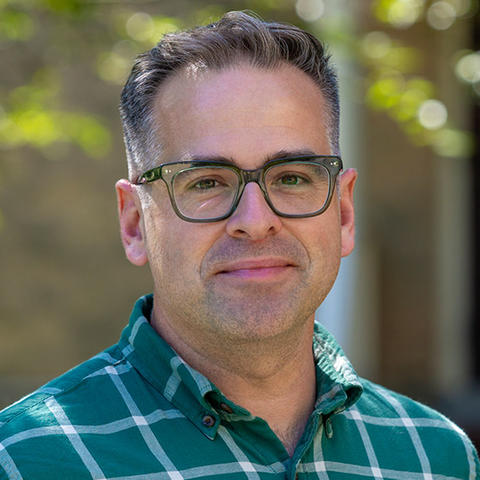Searching for Answers in Celestial Bodies

Alex Wang ’17 studied mathematics at Haverford. He now practices astrology in Shanghai.
Details
For Alex Wang ’17, practicing astrology in Shanghai is a natural offshoot of his mathematical academic pursuits at Haverford.
When he was young, Alex Wang ’17 liked to look up.
The skies over China were often obscured by smog, but Wang wanted to see the stars. Years later, he’s still gazing into the infinite, searching for answers in the celestial bodies as a practicing astrologer living in Shanghai.
“You can always appreciate astrology just by looking at the stars,” Wang says. “That’s how everything started.”
For Wang, who majored in mathematics at Haverford and began exploring astrology during a year he took off during college, studying the stars is in some ways a natural outgrowth of his academic pursuits. The orientation of the planets is nothing if not a mathematical relationship. In analyzing an individual’s birth chart, which maps the planets at the moment of first breath, he’s reminded of the mathematical search for answers. He was drawn to the process of logical deduction shared by the two subjects.
But where studying math was about building empirical facts, one on top of the next, “astrology gave me a different way of thinking about the reality I lived in,” Wang says.
He began by learning about Western astrology, finding that it offered him a way to make sense of his life at a time when he felt he had little control. He later shifted toward Vedic astrology, an ancient Indian practice with a more systematic approach that leads to more accurate predictions, he says.
Wang thinks of the information in a person’s birth chart as a weighty data set that requires a skilled interpreter to give it meaning. Clients turn to Wang with pressing questions about their career path, dating life, health, or wealth, which he dutifully answers over the course of a 90-minute chart reading, often with specific information about how they can best align their timing with the movement of the planets.
“I have to be really careful,” he says, “because this is somebody’s life.”
Wang’s astrological self-education is a lifelong pursuit to master his interpretive skills. For now, at least, “I can’t answer all the questions, just like I can’t solve all the math problems,” he says.
As he builds toward a full-time career in astrology by expanding his client base and burnishing his reputation, Wang is working in user experience design at German automaker Mercedes-Benz. But he’s not rushing the process.
“Astrology is really a study of time,” he says, and that study has taught him not to put too much pressure on himself. Everything will come to pass when it’s appropriate, he says, including his professional aspirations.
Wang’s commitment to his own curiosity has been rewarded with the deeper understanding he’s gained from astrology. As he pursues his own craft, he wants to inspire more people to engage with their own curiosity and grow an astrology community in Shanghai.
“Astrology exists in every civilization because everybody shares the same sky. People take note of that and codify it,” Wang says. “So I think everybody can develop an appreciation of astrology if you try to live in nature and look up a little more.”
—Ben Seal




